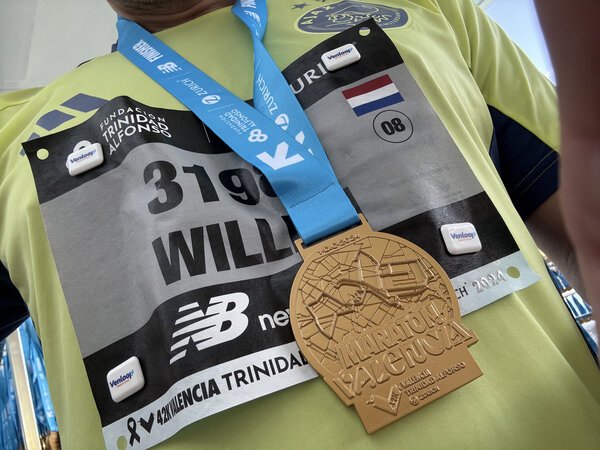Dec. 19, 2024
Data versus Feeling
Running two marathons in 6 weeks
Earlier this month I ran the Valencia Marathon (42KM), just six weeks after finishing my first ever marathon in Amsterdam. I used two different approaches for these races: running on feeling and running on data. The experience differed greatly, let me explain it in this blog post.
Background
If you're a friend of the blog, you know I have a thing for data and I often experiment with different health sensors and fitness trackers. After completing my first half marathon earlier this year, I asked myself about the usefulness of health and fitness data. The poll under that post shows that 17% of you do not collect any data at all.
Pro data folks would argue that only those things that you measure can be managed or improved. Health and fitness data can track progress you make. Folks use it as a motivator and as a way to show off to their friends on Strava.
In contrast, people critical on data often cite the importance of feeling. As a species we have evolved for thousands of years without data, we're wired to operate using our own senses. Data can have negative outcomes, including negative emotions and it can introduce an artificial pressure leading to stress. I recommend reading the extensive paper "The Dark Side of General Health and Fitness Related Self-Service Technologies" by Chen et al. that discusses the broad scope of academic literature on this subject.
I am somewhere in the middle, experimenting with different approaches to see how it works for me. With two marathons scheduled within six weeks, I decided to do a little experiment: run one marathon on feeling, one other on data.
Approach A: Feeling
The first marathon I ran with no realtime data. I relied solely on my feeling, I wore an analogue watch and 'measured' distance by simply keeping track of the various signposts along the route. I chose my pace by feeling my body, trying to balance speed and stamina. I did wear my WHOOP, but it operated in the background, providing me with heart rate data after the race.
Approach B: Data
The second marathon I ran using realtime data. I used an Apple Watch Ultra 2 showing my current pace, average pace, current heart rate, elapsed distance and time. In addition to its display, the watch vibrated every 1KM showing a summary of progress so far. I planned my pace in advance, targeting a specific average time that would have me finish the 42 kilometers slightly faster than my first marathon.
How did it go?
Feeling is a powerful, worthy gauge. But, with dopamine and excitement during the race it is hard to feel the difference between a 150 BPM pace and a 165 BPM pace, while the latter will be much harder to maintain for many hours. Before my first marathon I ran several training rounds, up to 30 kilometers. I learned how to pace myself up to this distance. But, when I exceeded the 28K mark during the full marathon, my performance crashed rapidly. I could not maintain the pace I started, forcing me to slow down and mentally fight the immediate desire to stop. Eventually I overcame this dip and finished the marathon in 4 hours and 15 minutes.
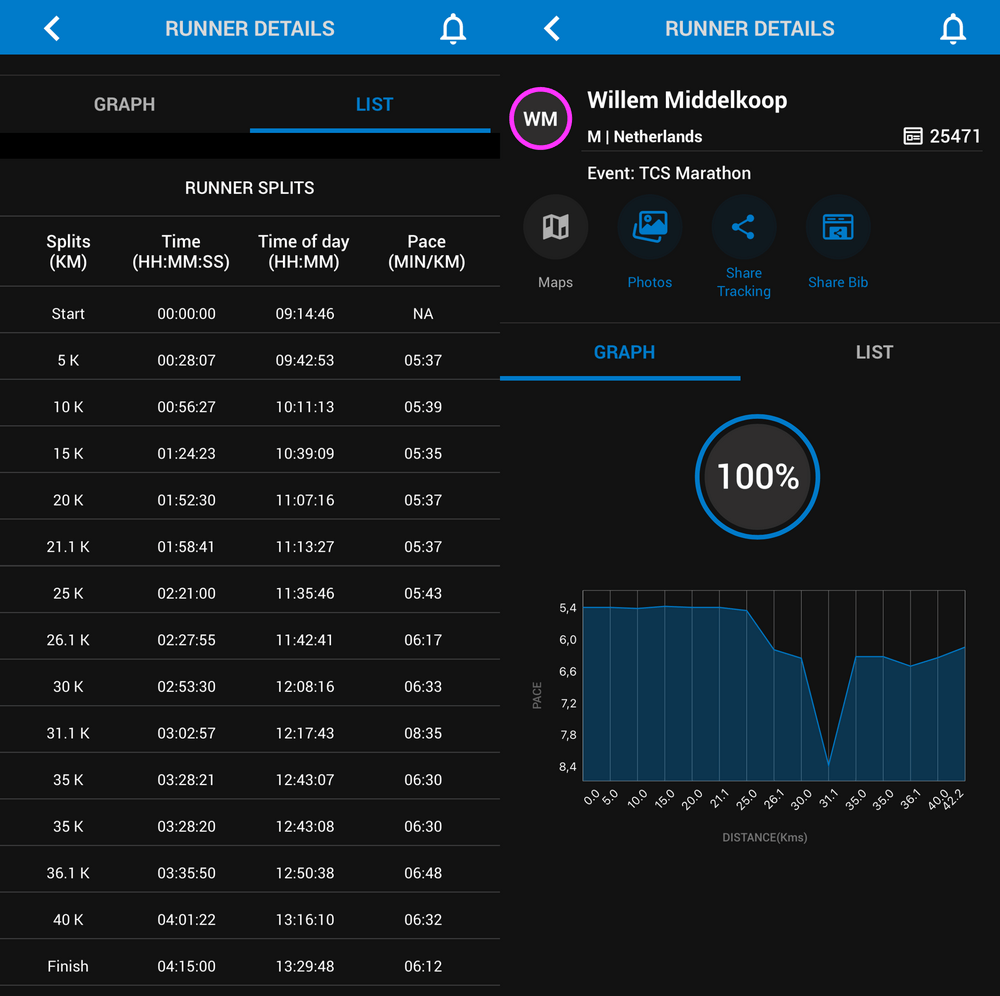
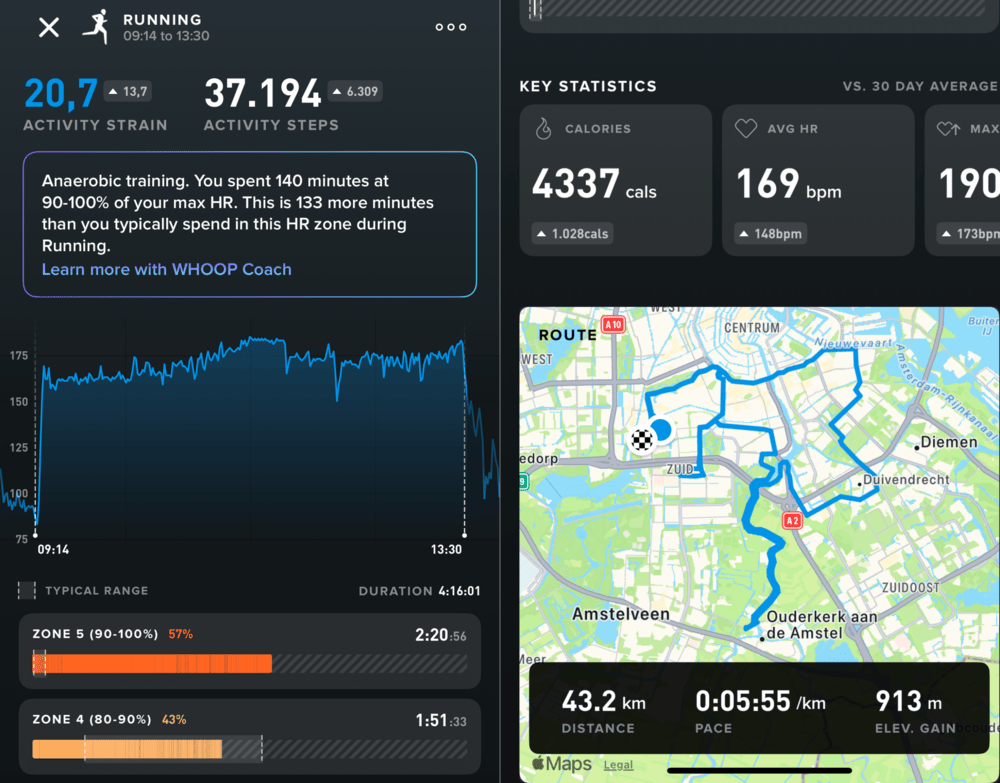
Based on the experience of my first marathon, I learned that I must start the second race slower. I settled on a 5'55"/km pace as it was an easy to remember number and it was very close to the average pace of my first marathon. It was my goal to stay close to this pace for at least the first 35 kilometers. After that I planned to 'let go' and see what kind of pace I could run for the last kilometers.
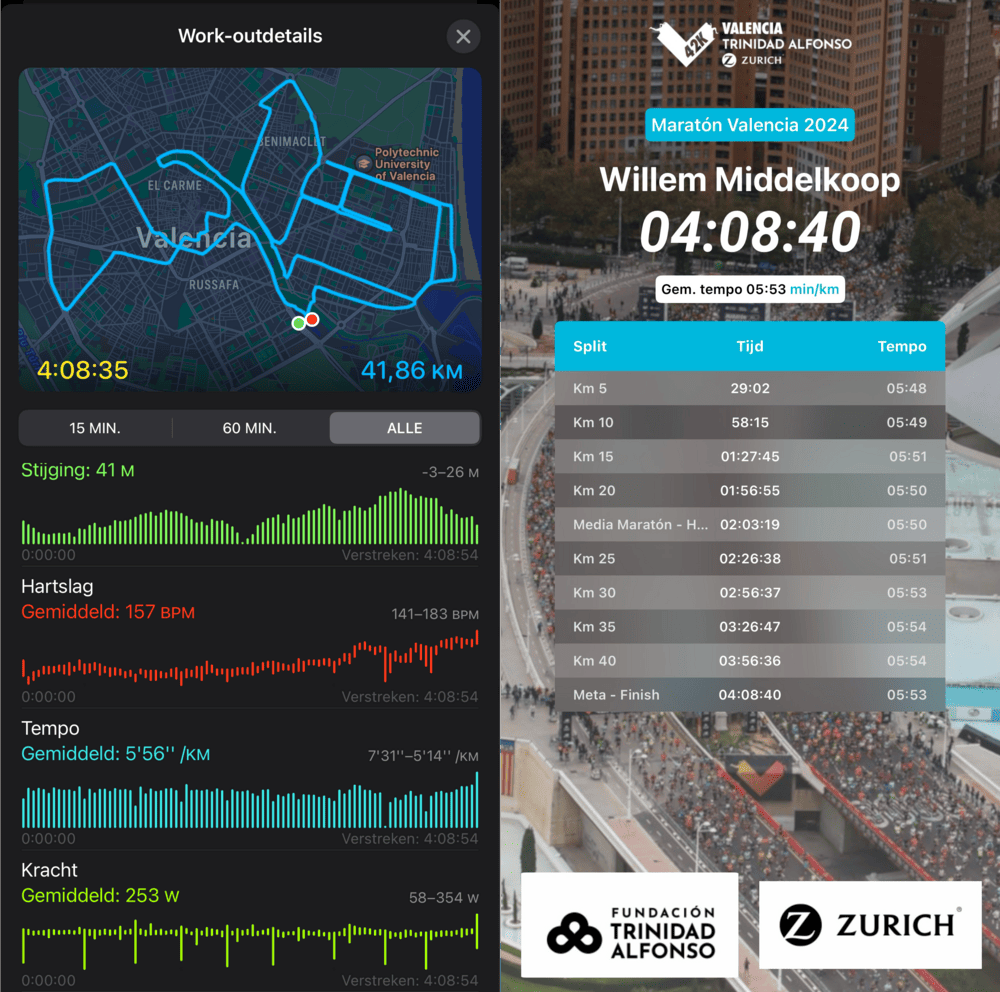
I regularly checked my watch while running, continuously adjusting my pace by going a little slower or faster to keep the numbers in check. In addition to my pace I kept an eye on my heartrate. I knew that if the BPM would go up too much, it would be impossible to maintain the pace. I managed to stay under 155 BPM for the first 60% of the distance. I felt much better, feeling way more capable to complete the race. In the end I was able to overtake a lot of folks that crashed, stimulating me to go even faster. The last kilometer was my fastest and I finished the marathon in 4 hours and 8 minutes.
Conclusion
After finishing my first, feeling based, marathon I described it as "nearly spiritual in its deepness". I still look back upon that experience as it having a profound effect on me. Crashing and rising up again made me realise that I am far stronger than I often think. The mental power this gave me, still reverbs within me. In contrast, even although I am proud of besting my PR, the second marathon feels more empty to me. The data made me go faster, but it took something away: it was less challenging.
Naturally I understand that I can "rediscover" this challenge by making it harder for myself: like going faster. This is what I plan to do for the next year: targeting a sub 4 hour finish time, possibly even better.
But ultimately I hope that by gaining more experience, I will be able to know myself and my body well enough to do this without data. To achieve peak performance by balancing body and mind. This is something to run for, ha!
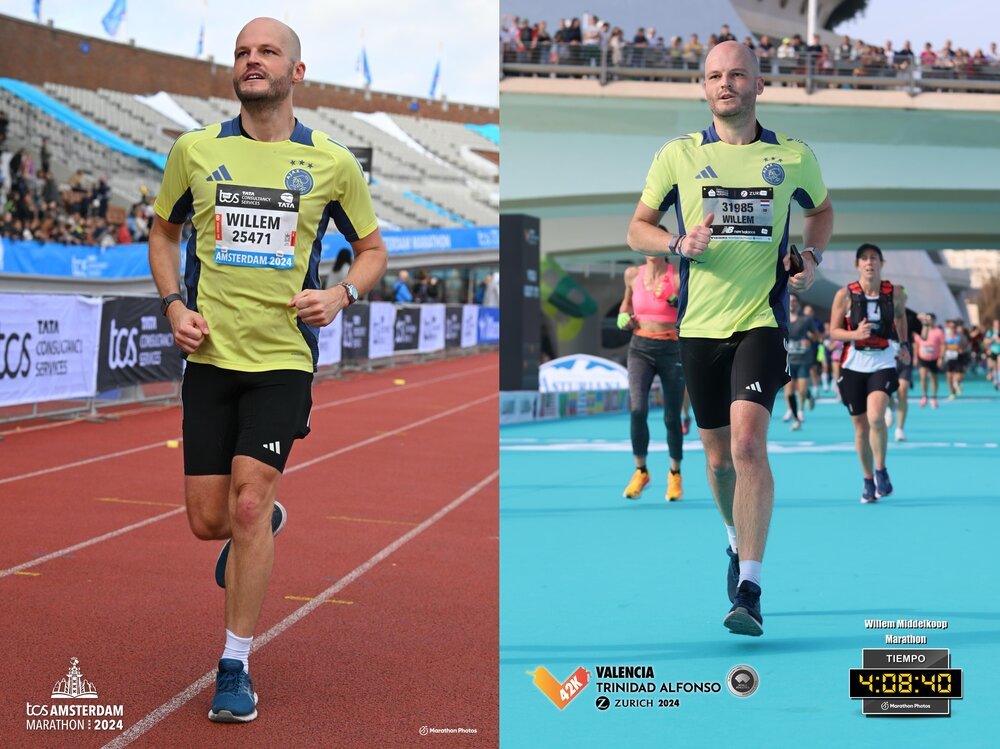
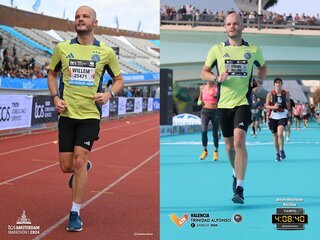
Download
If you enjoy reading offline, this article is available for download:
Translations
This article is available in the following languages:
RSS / Atom
Grab one of the feeds to stay up to date, the feeds contain the full posts:
